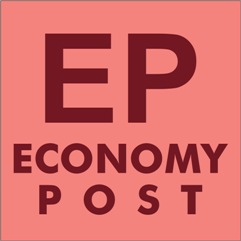Uttar Pradesh Chief Minister Yogi Adityanath said the state is moving steadily to becoming a global food basket with the agricultural sector playing a pivotal role in achieving the target of a $one trillion economy by 2030.
Yogi was addressing the Direct Seeded Rice (DSR) Conclave held at the International Rice Research Institute’s (IRRI) South Asia Regional Centre in Varanasi yesterday.
He said if quality seeds and technology are provided on time, UP can produce three times more than its current output.
He added Centers of Excellence (CoE) will be established in collaboration with international institutions like IRRI and the International Potato Center (CIP) to promote research-based agricultural growth.
Highlighting the state’s agricultural potential, Yogi noted India has 170 million hectares of cultivable land, 60% of which is irrigated, while UP produces 21% of the country’s food grains despite having only 11% of the land area and 17% of the population.
“UP leads in the cultivation of paddy, wheat, sugarcane, potatoes, pulses, and oilseeds,” he said.
The CM said revolutionary changes have taken place in the farm sector over the past 11 years under Prime Minister Narendra Modi’s leadership, linking farmers with initiatives such as Soil Health Cards, crop insurance, PM Krishi Sinchai Yojana, MSP at 1.5 times the cost, and the PM Kisan Samman Nidhi.
Referring to UP’s heritage, Yogi said Kala Namak rice, which was offered by Lord Buddha 3,000 years ago, is being promoted globally as Lord Buddha’s Prasad.
He added rice cultivation in UP has an 8,000-year-old history, with ancient inscriptions from Thanjavur and Ramanathapuram highlighting India’s advanced agricultural tradition.
After independence, UP’s food grain production increased from 11.77 million tonnes to 60 million tonnes, while the cultivated area expanded from 17 million hectares to 24 million hectares.
He also announced the establishment of a 250-acre seed park in Lucknow, to be named after former Prime Minister Chaudhary Charan Singh, for producing improved seeds suited to climate change.
He also expressed hope for the early establishment of an International Potato Center in Agra.
During the conclave, a battery-operated e-seeder and a precision hill seeder developed by IRRI and JNVV were unveiled, along with publications on direct seeding of rice, zero-tillage wheat, and the Samriddhi Rice Network.
Yogi urged scientists to take research “from labs to land,” ensuring that new technologies directly benefit farmers.
UP cultivates 7 million hectares of rice, 10 million hectares of wheat, and 2.9 million hectares of sugarcane, along with extensive pulses and oilseed crops.

